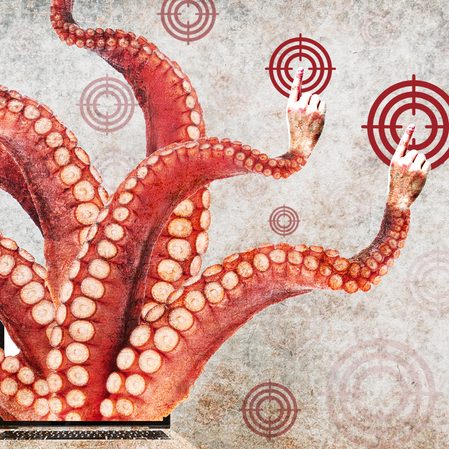This is AI generated summarization, which may have errors. For context, always refer to the full article.
‘Meta must stop red-tagging activities on Facebook so they can provide space for their users, the young people, to speak up for their rights,’ Amnesty International Philippines’ Mia Tonogbanua says
MANILA, Philippines – Dangerous red-tagging continues well into the administration of President Ferdinand Marcos Jr. and it is high time to hold Meta accountable for allowing most of these incidents to happen on Facebook, according to Amnesty International.
In its latest report on the impact of red-tagging, Amnesty International said it found that state actors continue to mainly use Facebook to “harass and smear” young human rights defenders, legitimizing further abuse, including arbitrary arrests and enforced disappearances.
The group also pointed out that “inadequate content moderation and ad approval mechanisms, and a failure to track the effectiveness of its risk mitigation measures have turned Facebook into an enabling environment that contributes to serious human rights violations.”
Mia Tonogbanua, vice chairperson of Amnesty’s board of trustees, said that Meta’s failure to implement adequate due diligence in its operations poses risks for activists.
“Meta allows [its] platform to be abused and this has to be stopped,” she said during the launch of the report on Monday, October 14. “They must stop red-tagging activities on their platform so they can provide space for their users, the young people, to speak up for their rights.”
Hard to report, including problematic ads
Red-tagging, according to a May 2024 decision by the Supreme Court, refers to the use of threats and intimidation to “discourage subversive activities,” and is a threat to a person’s constitutional right to life, liberty, and security.
Reporting red-tagging posts on Facebook, however, is futile, according to human rights defenders interviewed by Amnesty for the report. One Baguio-based youth activist pointed out that “even organized collective mass reporting events held had not led to a marked difference in the attacks.”
Amnesty International also found the problematic advertisement process on Facebook, which has allowed pages to expand the reach of their red-tagging content for a small amount of money. The group’s investigation found that one Facebook page that engaged in red-tagging was able to reach 6,000 to 7,000 users for as little as P100 to P199 ($1.70 to $3.40).
“The rise of online red-tagging is also deeply connected to Meta’s Facebook platform, through which the company wields enormous influence over public discourse but fails to mitigate the known risks and to prevent harm to human rights defenders in the country,” Amnesty said in its report.
To address these issues, the group urged Meta to implement a comprehensive review and overhaul of its human rights due diligence by mainstreaming human rights considerations, especially in relation to algorithmic systems, content moderation, and ad review.
“To fulfill this responsibility, community guidelines should be clearly aligned with international human rights law to ensure that content moderation neither fails to address potential threats to human rights, nor contributes to undue restrictions of the right to freedom of expression,” Amnesty said.
Can the current administration do something?
But how can Meta, a private company, be held accountable?
For Wilnor Papa, Amnesty’s head of advocacy and mobilization, pushing the owner of Facebook to act requires a combination of moves, including those from the government and the public.
While the group calls for the state to “set ground rules” since corporate actors such as Meta follow local laws, it also urges citizens to continue calling out the platform as well as the government for inaction against red-tagging.
Ultimately, however, the Marcos administration should make concrete moves to stop harassing activists, including putting an end to the Duterte-era National Task Force to End Local Communist Armed Conflict (NTF-ELCAC). A previous Rappler investigation found it to be the center of a network composed of pages and groups that published red-tagging content.
“Even during the time of Marcos, who claims he is sensitive to human rights — this is contradicted by his failure to abolish NTF-ELCAC give a direct command or order to stop red-tagging,” Papa said in Filipino. – Rappler.com





































